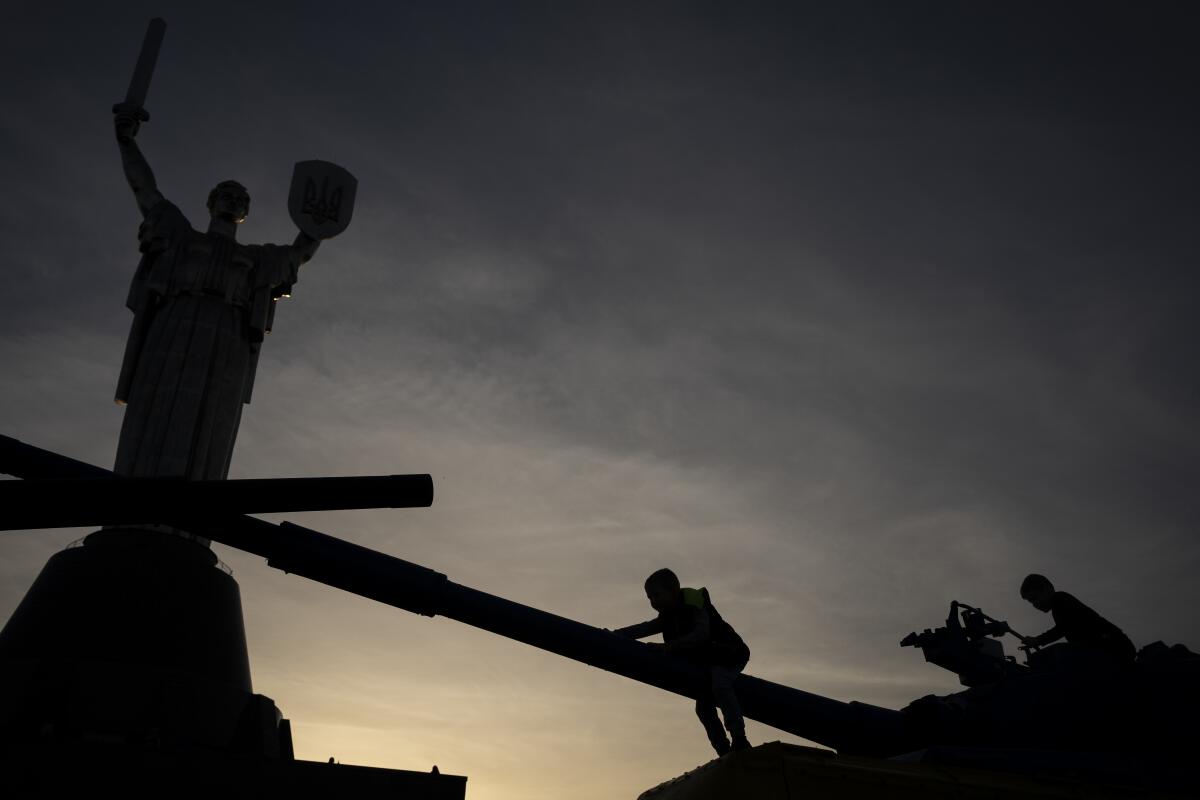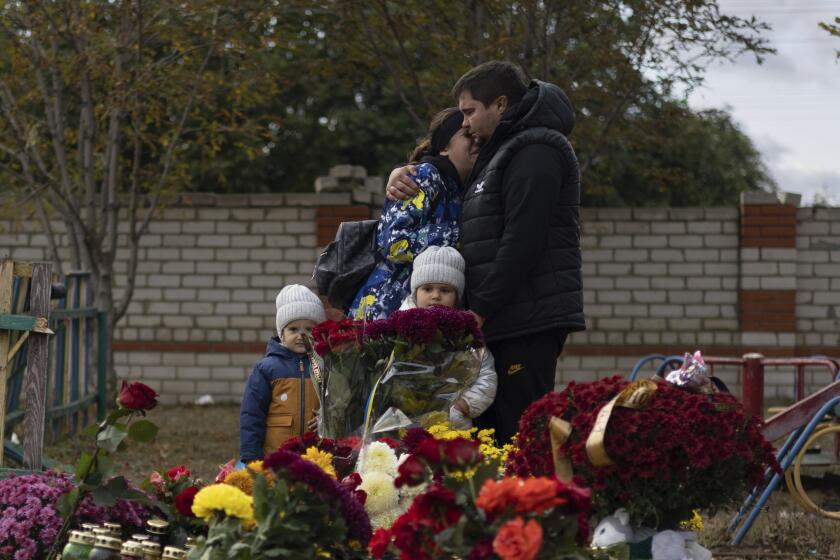Russian artillery keeps on battering southern Ukraine’s Kherson region

KYIV, Ukraine — Russian shelling killed an 81-year-old woman in the yard of her home and a 60-year-old man in southern Ukraine’s Kherson region Thursday, local authorities said. The deaths were the latest civilian casualties in Moscow’s recent ramped-up bombardment of the front-line area.
Kherson is a strategic military region located on the Dnipro River near the mouth of the Black Sea. Unconfirmed reports say attacking Ukrainian troops have gained a foothold on the Russian-held side of the river during Kyiv’s months-long counteroffensive.
The two civilians died when Russian artillery targeted Kherson region villages, according to Gov. Oleksandr Prokudin. Four others were injured in the strikes, which also damaged residential and public buildings, authorities said.
On Wednesday, one person died in Russian shelling that caused extensive damage in the Kherson region’s capital city of the same name. Prokudin called it “an apocalyptic scene.”
A 91-year-old woman was killed in her apartment last weekend in what Prokudin described as a “terrifying” nighttime barrage.
The Kherson region is a key gateway to the Crimean peninsula, which Russia annexed from Ukraine in 2014 and is now home to a lot of Moscow’s war logistics operations and rear supply depots.
United Nations investigators urge Russia to acknowledge responsibility for an Oct. 5 missile strike on a Ukrainian village that killed 59 civilians.
Ukrainian forces recaptured the city of Kherson last November after nearly nine months of Russian occupation following Moscow’s full-scale invasion on Feb. 24, 2022. The Kremlin’s forces retreated across the river to the eastern side of the Dnipro.
The developments placed the city on the southern front line and at the mercy of Russian drone and artillery attacks from across the river that frequently target civilian areas.
The current counteroffensive, which started four months ago, so far has fallen short of the Ukrainian military’s goal of dislodging Russian forces from large areas. The war now appears set for another winter of grinding attrition.
But Kremlin spokesman Dmitry Peskov dismissed claims by Ukraine’s commander-in-chief that the war had reached a stalemate. Gen. Valerii Zaluzhnyi made that observation to the Economist.
Russia is steadfastly pursuing its war goals, Peskov said. “It’s absurd to talk about any prospect for the victory of the Kyiv regime on the battlefield,” he added. “The sooner the Kyiv regime comes to realize that, the earlier some other perspectives will open up.”
Russian authorities commonly use the term “Kyiv regime” when referring to Ukraine’s democratically elected government.
Russia is earning fistfuls of money from oil sales. The U.S. needs to tighten enforcement of the oil cap and restore its funding of Ukraine.
Ukrainian officials are striving to maintain the crucial Western support the country has received during the war even as international attention is pulled toward the possibility of the Israel-Hamas war evolving into a wider conflict in the Middle East.
Ukraine is keen on quickly becoming a member of the 27-nation European Union, though that process could take years as Kyiv undertakes a long list of reforms demanded by Brussels.
Ukrainian Foreign Minister Dmytro Kuleba urged the EU on Thursday to adopt a more agile approach to admitting new members.
“Our main position that I brought from Kyiv is that EU reform should not take [the] enlargement process as a hostage,” Kuleba said as he arrived at a conference in Berlin on the bloc’s future expansion.
“We have to find the right balance between the process of reforming the European Union and continuing with enlargement,” he said.
Associated Press writers Yuras Karmanau in Tallinn, Estonia, and Geir Moulson in Berlin contributed to this report.
More to Read
Sign up for Essential California
The most important California stories and recommendations in your inbox every morning.
You may occasionally receive promotional content from the Los Angeles Times.












